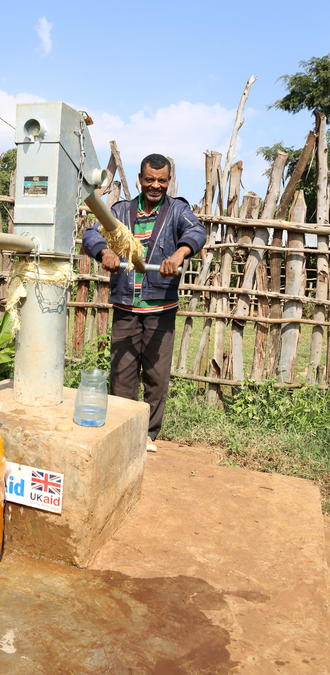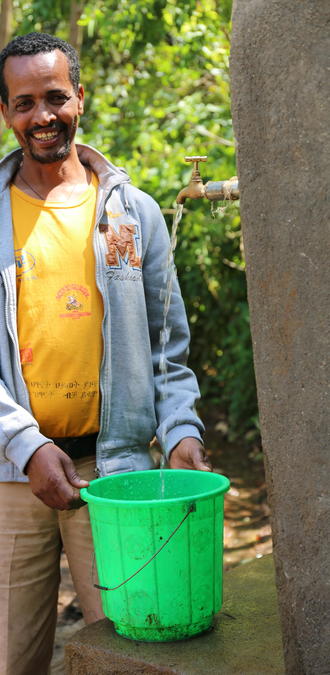#PressforProgress: break barriers and challenge stereotypes

Acting and thinking in a gender-inclusive way will get us quicker to the change we want to see – poverty eradicated and the people we serve enjoying the benefits of lasting change. Bethlehem Mengistu, Country Director of WaterAid Ethiopia, shares her experience of the ripple effect of WASH on gender equality in Ethiopia.
This year’s International Women’s Day Theme – #PressforProgress – is fantastic, not only because it highlights the need for collective effort to bring about collective change, but also because it reflects the urgency the issue of gender equality deserves. I believe anything is possible when like-minded people come together. And when it’s like-minded women who come together, well, they can be pretty much unstoppable...
I especially like the theme because it underlines the journey towards progress as being inclusive and with shared benefits – women and men working together to bring about societal progress.
Having worked for WaterAid for seven or so years, I have seen the amazing impact that safe water, decent sanitation and good hygiene (WASH) have on communities – women, men, girls and boys. The immediate impacts are often obvious – access to WASH saves lives; it enables people to have a life with dignity and health.
But how about the more subtle social and psychological impacts we often skim over in our reports because they are difficult to quantify?
I always try to re-evaluate the different approaches that we, in the WASH sector, employ to influence gender roles and power relations to ensure benefits of WASH services are enjoyed equally across genders.
For example, one key approach is for WASH committees to meet a quota of 50:50 ratio for men and women. This approach is important – I believe participation and representation are critical to being heard and counted. However, the quota should not be seen as an end in itself. It should be regarded as a means by which to realise shared decision-making and ensure the benefits of services are shared.
Sharing the responsibility
A recent field visit to Burie, one of our projects in Amhara region, taught me something completely new about the (honestly unintended, but positive) impact improved WASH services are already having in redefining gender relations, even in such rural, and, hence, rather patriarchal communities.
We saw men casually carrying jerry cans of water home, walking side by side with their wives and daughters. (Gasp!) We spoke with one of the men, Tamiru, a former soldier, and asked him a few questions about it. Here is what he had to say:
“I collected two jerry cans yesterday, too. I may not always intentionally come to collect water, but if I see that my wife or my children are collecting water, I step in and take one of the jerry cans on my way home. We are learning that men should collect water, just like women. In our language we say, ‘a foolish husband laughs when his dinner overcooks’. What we mean by it is that a smart husband should understand getting the overcooking food off the fire is not necessarily his wife’s job. He should realise the fact that, if it’s overcooked, they are all going to bed hungry. We as men have to do our parts to improve our livelihoods. I will certainly be more intentional about it and collect water from now on. A lot of men are already doing it.”
This conversation was shocking for some of us. Do you have any idea how many trainings, community consultation meetings, fliers and radio spots it would normally take to get men in such rural areas to do such ’womanly’ chores? A lot! And are externally imposed behavioural shifts sustainable anyway?
The wonderful thing about this particular change is that we didn’t even plan it. The change in behaviour just followed the change in their lifestyle, which, in turn, followed the change in the way the community accessed and viewed water.
Sharing the benefits
Another man in the community told us something that I found equally impressive.
Bazizew said, “It’s changing everything. We are letting our children be children and the students be students. My wife can stay at home and take care of the other chores while I collect the water. It just saves time for all of us. Then we can go and work at the farm together. Do you know what it means to have your wife working by your side in the farm? Your productivity just doubles.”
The most sustainable changes are the ones that have practical incentives in people’s day-to-day lives; the communities we serve are beginning to see these incentives for themselves. They are already putting the archaic gender stereotypes aside and are pressing for progress – together! It’s time the rest of us did the same.
Happy Women’s Day!





